
Caffeine is a big part of my life. In fact, technically I'm genetically prone to consume more than the average person. That's right — I got the fancy 23andMe genetics test that told me so. Lorelai Gilmore speaks to me, as I also can't get through the day without coffee.
And, well, that's a problem. The only time in my life when I went caffeine-free was when I was pregnant. And honestly, even that was … kind of a stretch, because usually a cup of half-caff ended up in my day somewhere. It's a little sad to think that, mentally, I feel as if I can't function without it. Going caffeine-free for a week, or even a day, seemed torturous. That said, caffeine is technically a drug. So openly claiming that I "can't live without" it is a little worrisome.
It's even harder being a mom to a toddler. I work with my daughter at home most days, and she keeps me busy. Since toddlers don't drink coffee (at least, they shouldn't), it's intriguing to find out where she gets her energy. Yes, she's a decent eater, but she can also run laps on a belly that consists of one Ritz cracker. Coffee is commonly how I reach her level, and wine — on occasion — is how I drop back down to relax at night.
That's why I figured that it was a good time to challenge myself. How did caffeine really affect my body? Would I be useless without it? While I did give one of my editors the warning that "this was the week," I also didn't want to feel sluggish. However, I didn't realize that when I went caffeine-free, the results would actually surprise me.
Day One
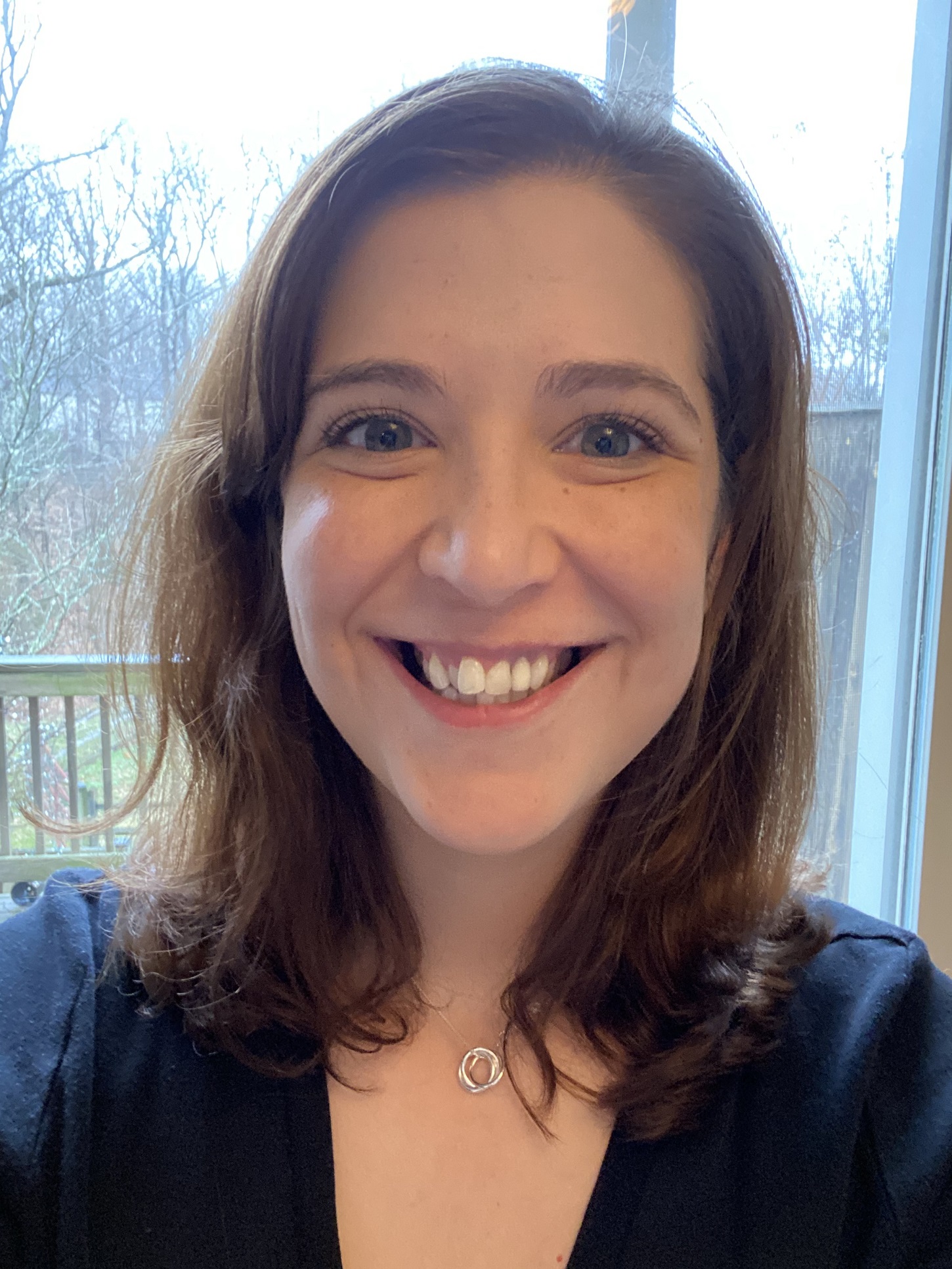
I consider myself to be a very routine person. Any break in the routine freaks me out at first, but eventually, I can adjust. I chalk that up to my general anxiety. I've tried to loosen up a little more this year, but sometimes I still freak out a bit on the inside.
And that's why I needed a "replacement" to get me through the first couple of days, at the very least. I don't know how a box of decaf coffee pods ended up in my cabinet, but there they were. Did a friend bring them over? Did an enemy place them there?
Let me tell you something, friends. There’s nothing in this world that’s worse than decaf coffee. Full disclosure: It may have been expired — but that’s me giving it the benefit of the doubt.
Having the mug in front of me, though, was truly helpful. It made me feel, mentally, like nothing was changing.
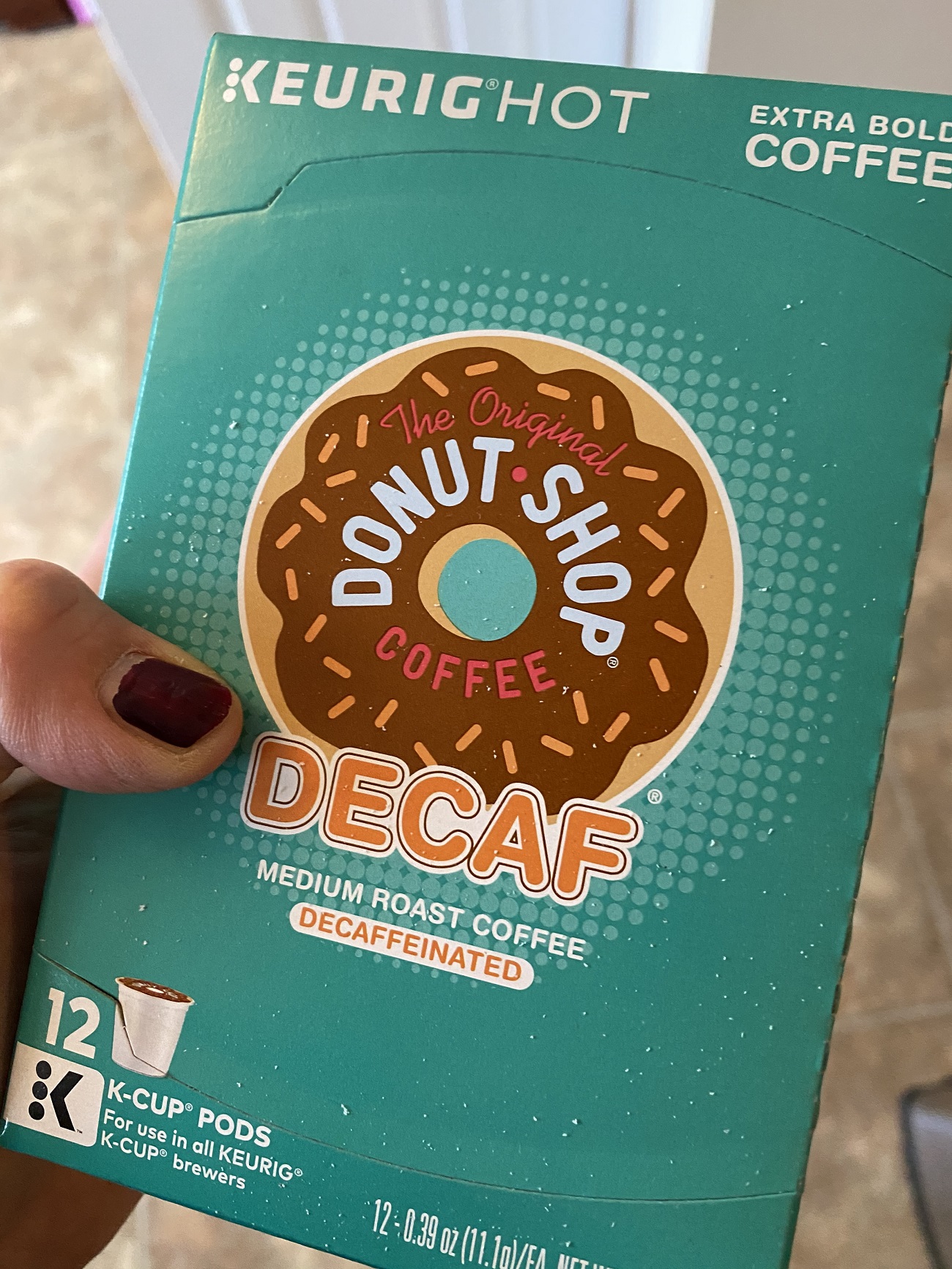
I'm an ex-smoker, and it was a tough realization that part of the addiction to cigarettes was mental. That addiction included the physical act of going out and keeping a routine. This knowledge at least made things easier for me regarding coffee.
Day one didn’t really go smoothly. Not only did I feel a slight mental fog the whole day, but I made a lot of really dumb decisions.
I’ve tried to make a point for my daughter and me to go out for a neighborhood walk every morning. Let me tell you something about my daughter: She loves being outside. Even if it’s raining, she’ll twirl around and look for puddles to stomp in. That Monday morning wasn’t rainy, but Sunday night had been.
The Science of Coffee
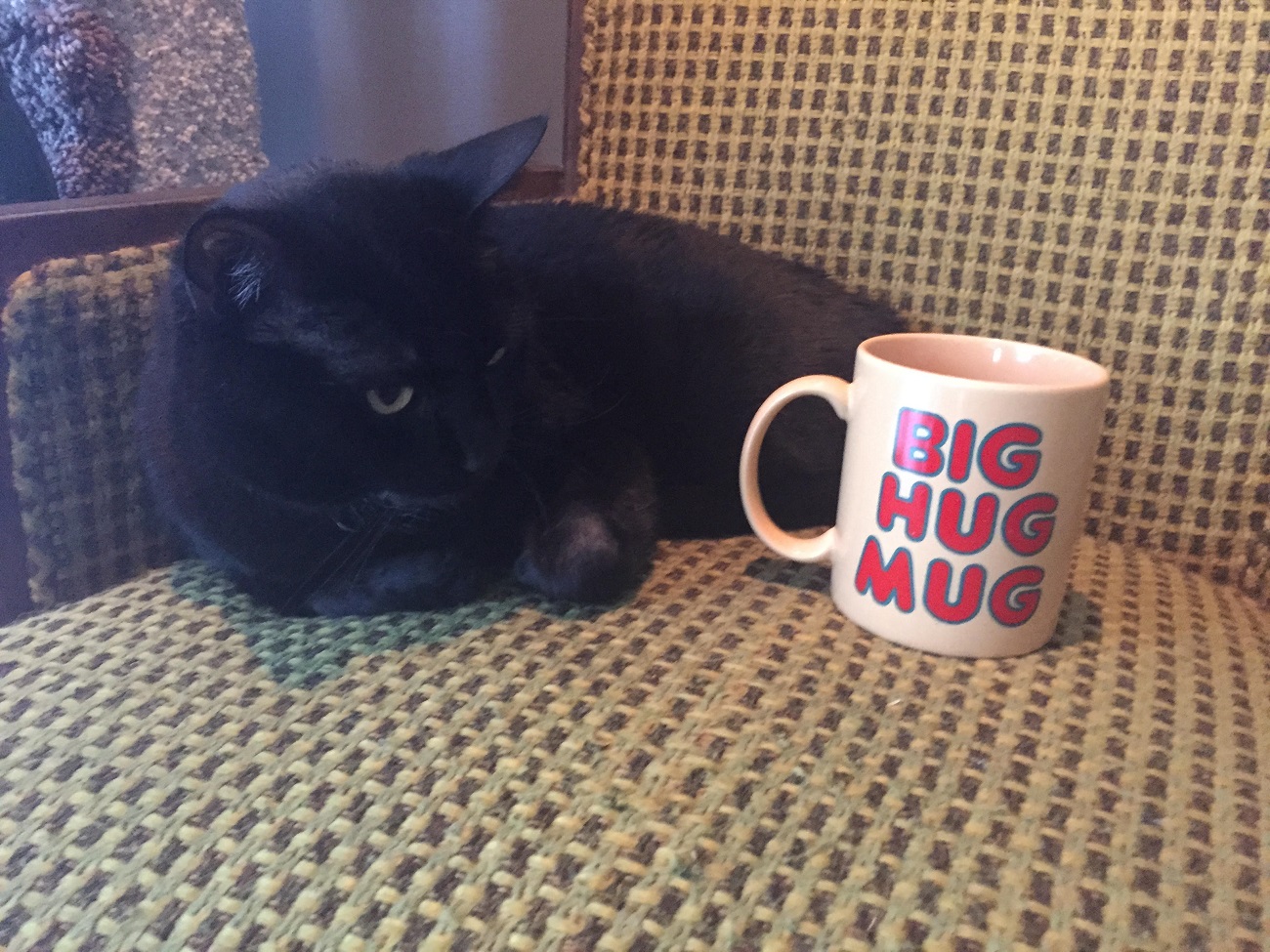
Not thinking twice, I took my daughter out, and she found a puddle. When her feet were soaked, I realized that I had forgotten to put shoes on her. I know — it wasn't my finest moment.
Luckily, we were close enough to the house when I realized what happened. I still couldn’t believe that a lack of caffeine could rewire my brain.
I looked into it. Luckily, plenty of people have done research on the effects of caffeine before. Inverse posted an interesting study that talks about caffeine withdrawal.
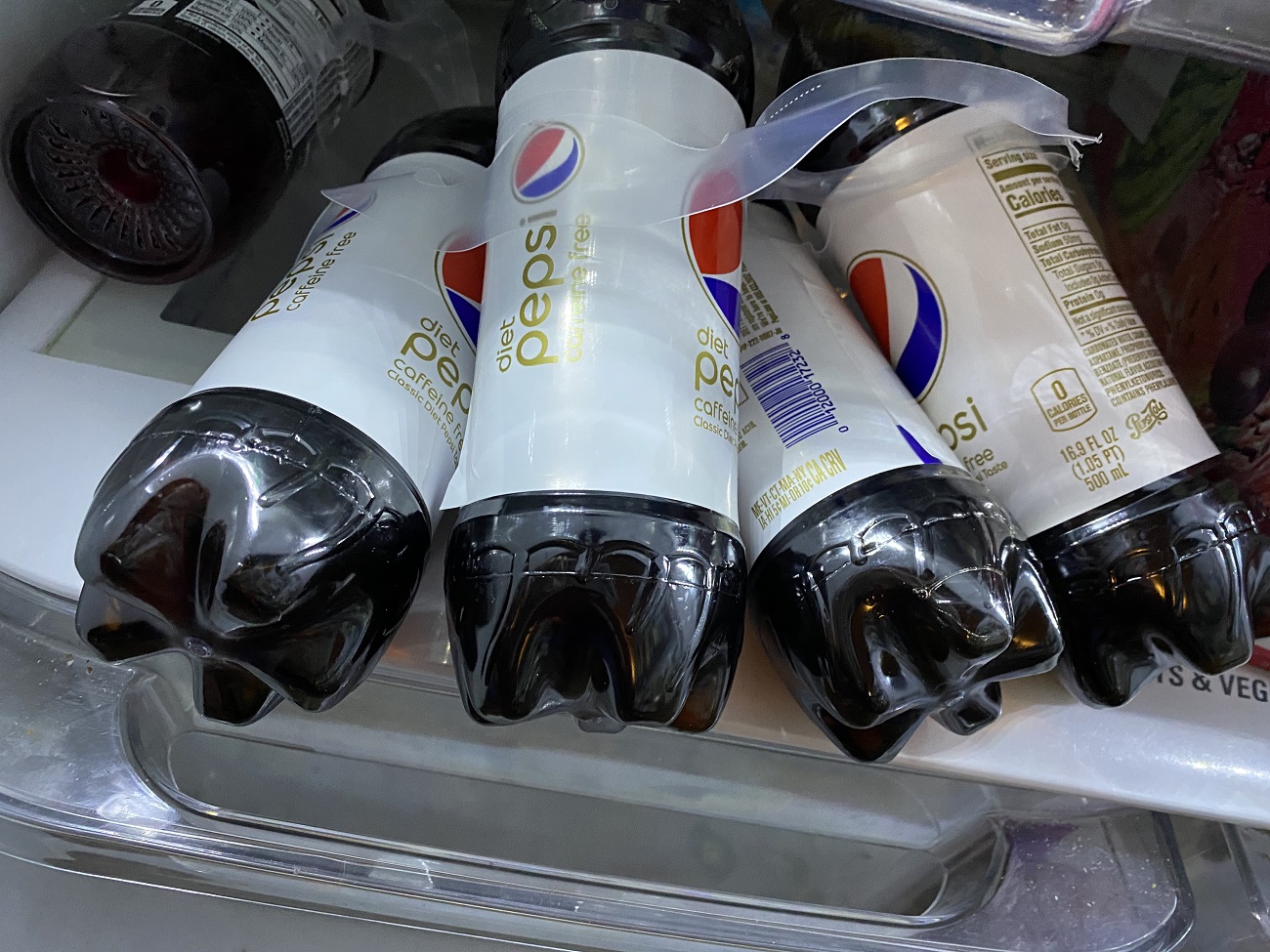
Supposedly, symptoms kick in anywhere between 12 and 20 hours after your last cup. Two days later, the headaches start to occur. That said, I actually didn't have a lot of symptoms. Surprising, right?
I obviously didn't feel as "sharp" as usual (see: shoes incident), but as far as headaches go, I felt clear. That could have been due to the fact that aside from the morning decaf, I was substituting seltzer water for every caffeinated drink I didn't have. So I was also pretty well hydrated by the end of the day.
Mid-Week Check-In
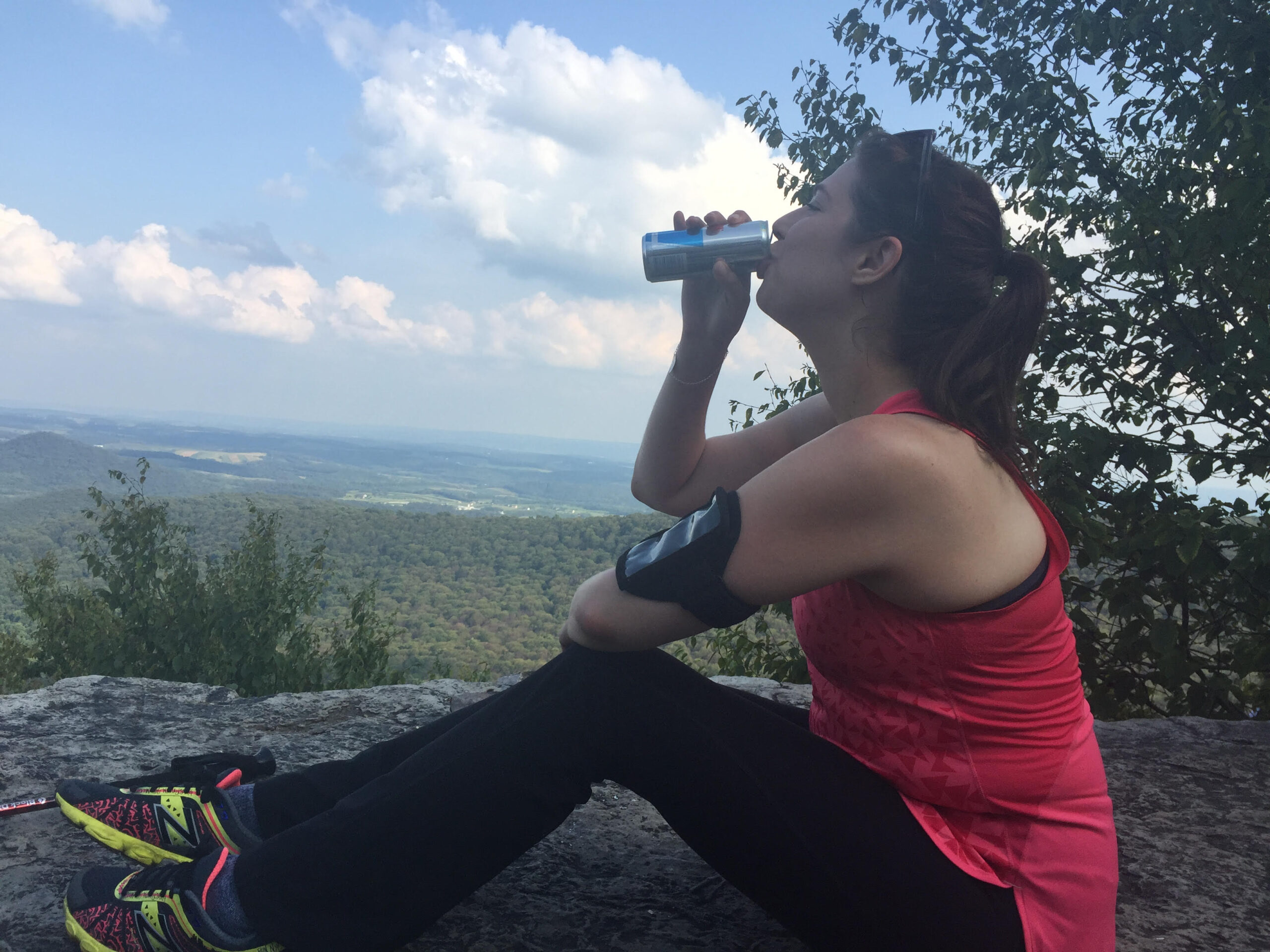
Every day that passed, I saw my goal line. It didn't help that prior to this experiment, I bought a large amount of sugar-free Red Bull that was currently hanging out in my closet, unopened.
I told you about my love of coffee, but let me tell you about my unhealthy relationship with Red Bull Sugarfree. One time in college, I told my friends that if I ever turned into an action figure, that light blue can of Red Bull would be my accessory.
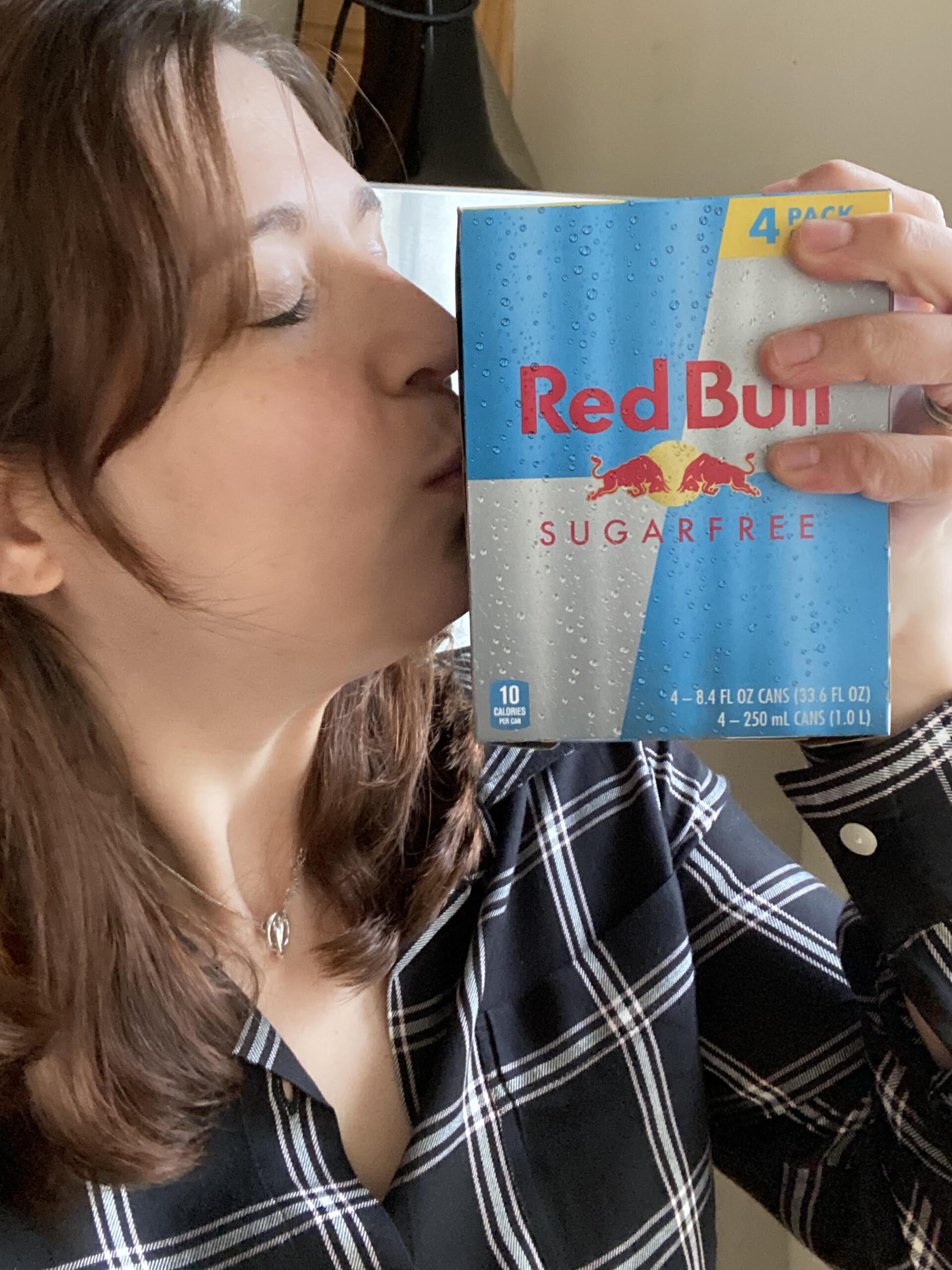
I drank it so much that the sales reps at Red Bull tried to offer me a job after I graduated. Unfortunately, the logistics didn't work out, even though the dream of free Red Bull is something I still hold onto.
But I digress. I will admit that while I missed caffeine, I was sleeping better than ever. It should come as no surprise that I often have insomnia spells.
I thought it was due to the anxiety, as I constantly have thoughts running through my head about things I did and didn't do (and embarrassing stuff I did in middle school — every anxious person replays that stuff, right?). But turns out that the caffeine didn't help matters.
I have been told this multiple times in my life, yet I didn't want to believe that caffeine would betray me. But here I am, finally speaking my truth.
The Conclusion
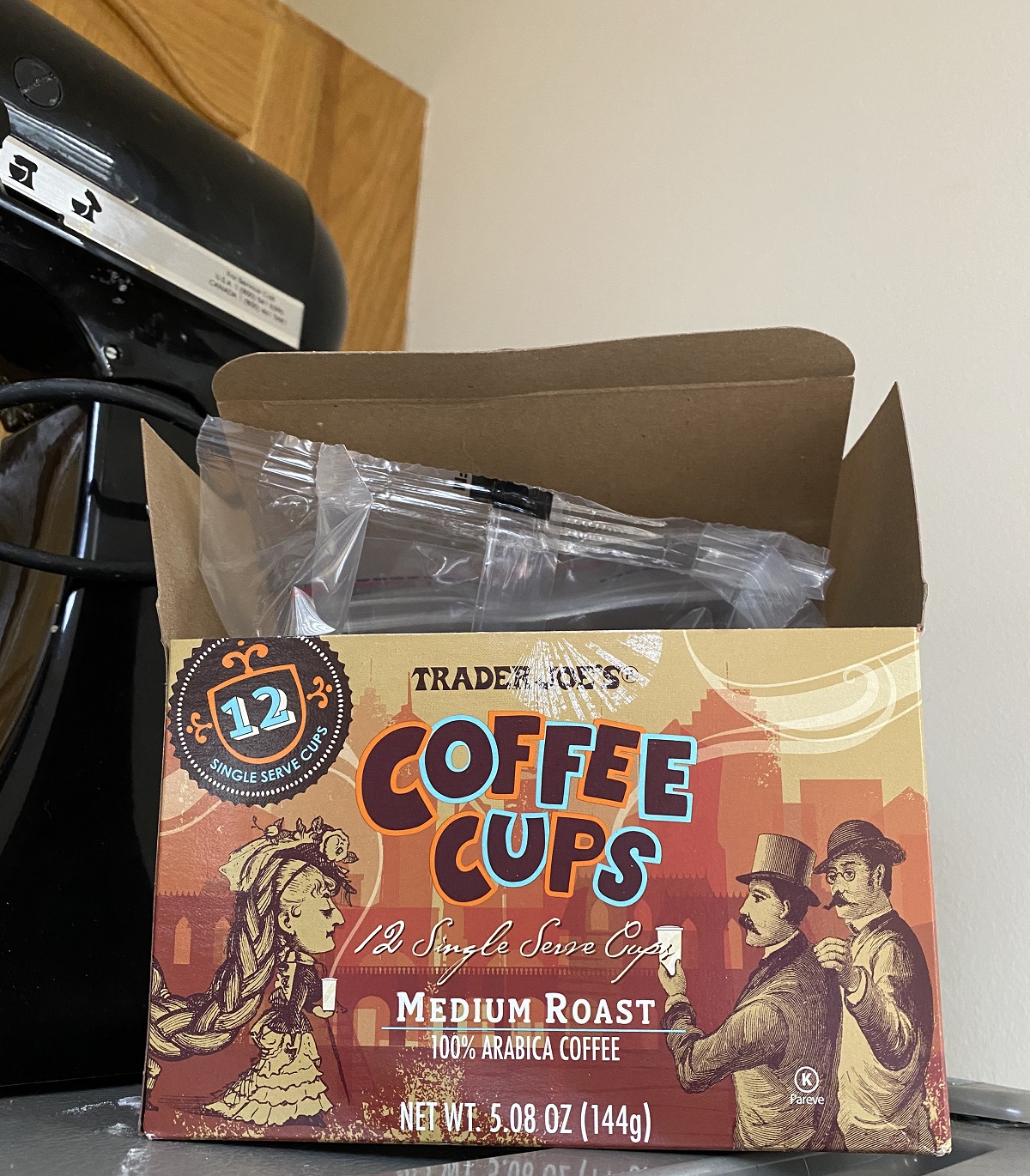
Caffeine isn't all bad. In addition to its stimulant effect, it also increases your level of dopamine, which helps you stay happy. I have a lot to be happy about in my life, but the mental fog made it tougher to acknowledge those points.
I wasn't depressed. But I wasn't myself.
I felt like throughout that week, I just existed. In general, I was calm — and that wasn't the worst thing in the world. But I wasn't as chatty or goofy as I was the week prior. I got stuff done and then went to sleep at a decent hour every night. Was this adulthood?

As I was about to end my experiment, I was off the decaf coffee. In the mornings, I substituted it with a fruit smoothie that also served as my breakfast. That, in itself, was naturally energizing. While I was excited about going back to a life of caffeine (if anything, to have something other than water to drink at restaurants), I was content with where I was.
Readers, what came next was something I never expected.
Even though I bought two packs of Trader Joe's coffee to prepare for my coffee-filled mornings, I literally forgot to make myself a cup for two days. It was almost like my body fully adjusted to the way things were.
I tried to think about why this was, and I came to a conclusion: I really was addicted to caffeine. And after it left my system for good, I realized that I don't need caffeine as much as I thought I did.
The Road From Here
That said, some of my favorite drinks are caffeinated. So even though cutting it out completely is something I feel like I can actually do now, I probably won't. (For the record, decaf soda is a lot better than decaf coffee. Just so you know.)
I will, however, monitor my consumption. Too much of anything isn't good for you. Substituting seltzer water throughout the day is the healthier choice.
For me, the two biggest changes were my quality of sleep and my overall personality. While my brain fog lasted a majority of the week, it completely disappeared by the end of my experiment.
I wasn't necessarily irritable without caffeine, but I was a little more frustrated if more things suddenly got put on my plate. Caffeine can definitely increase your energy, so that makes sense. Healthline even credits coffee with making you smarter.
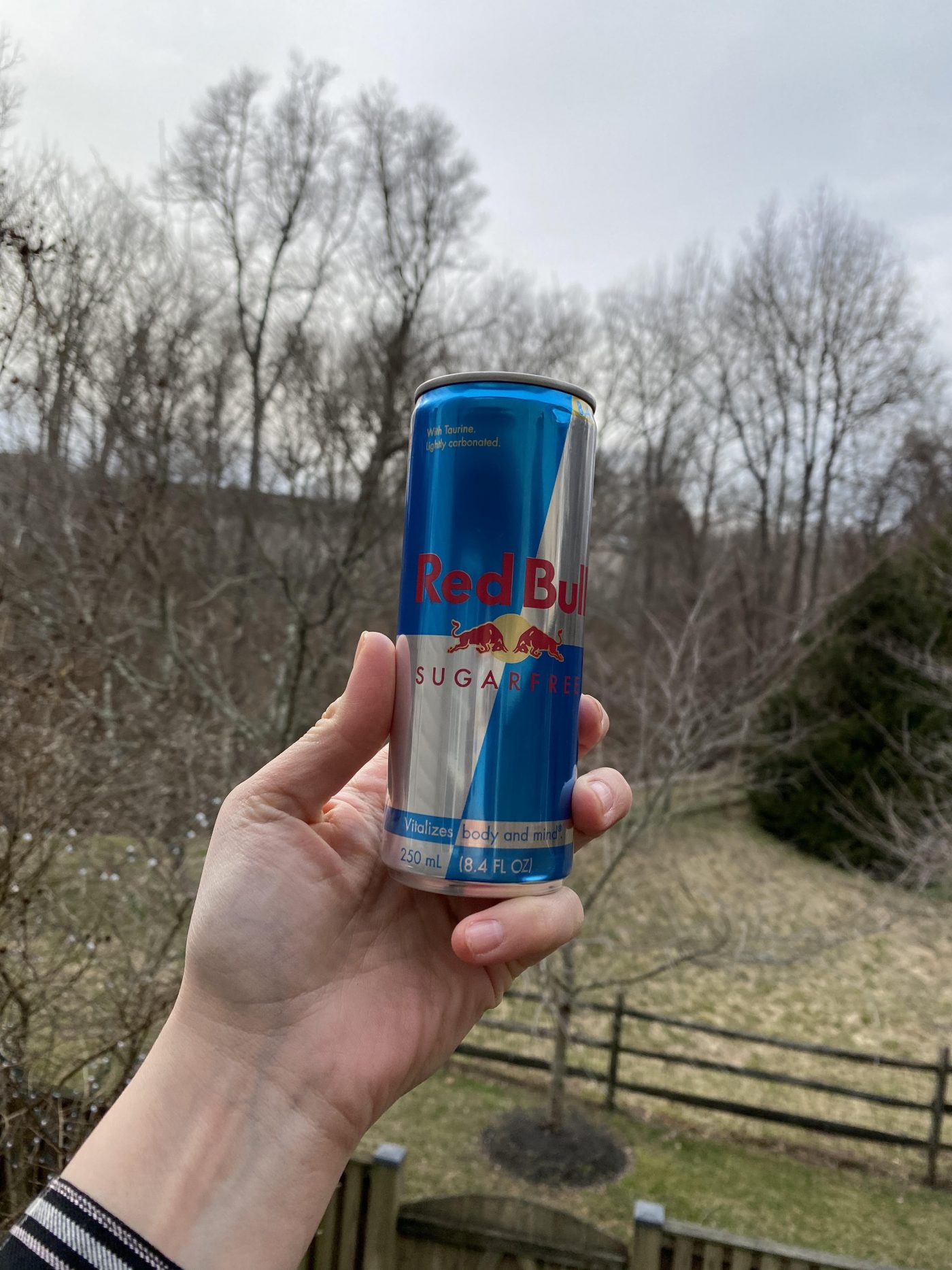
While I went into this for the experiment and the story, I ended up truly benefiting from it. Like with everything in life, sometimes it's just nice to take breaks. If I can go without caffeine for a week, literally anyone can.




